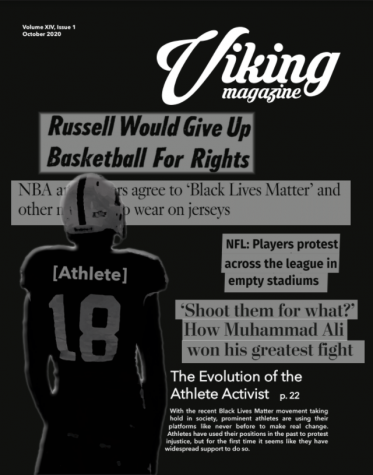Looking Back: Four Times Sports Have Been Cancelled Due to Global Issues
As a result of the Coronavirus pandemic, sports all around the globe were indefinitely suspended. In a dull time without something we cherish, it is important to remember that this has happened before.

The following moments after the Loma Prieta earthquake struck during the 1989 World Series
May 28, 2020
It’s hard for us to internalize how much sports mean to our society until they cease to be played. The coronavirus pandemic has provided us with exactly that perspective after it caused March Madness to be cancelled and the NFL and MLB seasons to be indefinitely cancelled— yet it is important to remember that sports seasons have been shut down or postponed due to out of nature circumstances before.
The September 11 attacks in 2001 rocked the sports world unlike anything else up to that point. The 2001 MLB season was concluding while the NFL season had just finished the first week of the regular season when a coordinated terrorist attack by Al Qaeda resulted in the deaths of 3000 Americans. As a result, the MLB season was suspended for a week and the NFL had to move the games they missed from a cancelled Week 2 until the end of the season. The return of sports proved to be one of the most effective bandages for the wounded country— a month later, President George W. Bush’s first pitch at Yankee Stadium in the 2001 World Series proved to be a symbol of a country reunifying during one its darkest hours.
The 1980 boycott of the Summer Olympics in Russia caused perhaps the greatest ripple in the global sports world ever. The United States and the Soviet Union were at the peak of the Cold War when tensions finally boiled over. The USSR invaded neighboring Afghanistan in 1979 in an attempt to support a pro-Soviet regime, which the Western powers vehemently opposed. The U.S. created a coalition of 60 countries led by President Jimmy Carter to boycott the 1980 summer games. The Soviet Union responded by leading a boycott of 14 countries to skip the 1984 Olympics, which were held in Los Angeles.
The 1989 San Francisco Earthquake is an event that many current student’s parents remember and lived through: it is arguably the most significant natural disaster to occur during a major sporting event. The San Francisco Giants were about to start Game 3 of the 1989 World Series versus their Bay Area rival, the Oakland A’s. The whole region had practically shut down to watch the game when the Loma Prieta Earthquake struck 30 minutes before the first pitch and hit Candlestick Park with a 6.9 magnitude. This moment is most iconically remembered on television as right before the ABC broadcast cut out and legendary broadcaster Al Michaels could be heard saying, “I’ll tell you what… we’re having an Earth-” The disaster caused an estimated $6 billion in damages, and caused the World Series to postponed for five days in order to prevent an aftershock from causing the same situation. The A’s would go on to sweep the Giants to win the World Series. A’s player Dennis Eckersley famously said after the Earthquake, “You thought it’s an earthquake and now everybody will get back in their seats and let’s play. Then you heard the bits and pieces, and thought, ‘uh-oh, this is serious.’”
In 1944, the Summer Olympics were cancelled due to World War II. A significant amount of time was spent debating whether or not domestic sport should also be put off in the United States. On January 15, 1942, President Roosevelt famously told MLB commissioner Landis to continue baseball. The “Green Light Letter” as it became known, expressed the importance of sport for the country. Roosevelt felt as though sport created a sense of normalcy and much needed light-hearted entertainment. Although many stars of the game were drafted into service, baseball persevered. Despite not being able to play sports, the example of baseball in World War II shows that even the darkest of times sport will continue in some form. Further, the subsequent 1948 Olympics were able to take place in London where the 1944 Olympics would have been.











